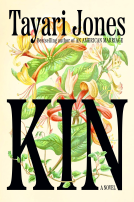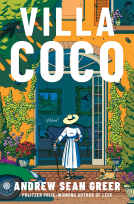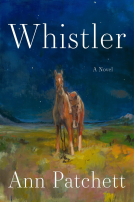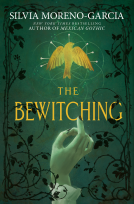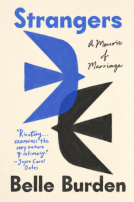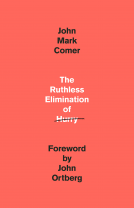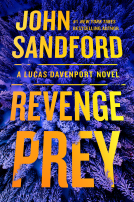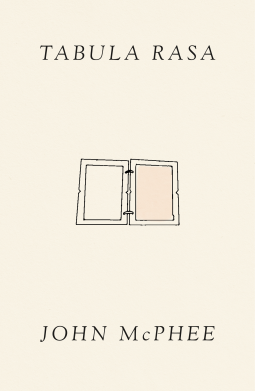
Tabula Rasa
Volume 1
by John McPhee
This title was previously available on NetGalley and is now archived.
Send NetGalley books directly to your Kindle or Kindle app
1
To read on a Kindle or Kindle app, please add kindle@netgalley.com as an approved email address to receive files in your Amazon account. Click here for step-by-step instructions.
2
Also find your Kindle email address within your Amazon account, and enter it here.
Pub Date Jul 11 2023 | Archive Date Sep 07 2023
Description
A literary legend’s engaging review of his career, stressing the work he never completed, and why.
Over seven decades, John McPhee has set a standard for literary nonfiction. Assaying mountain ranges, bark canoes, experimental aircraft, the Swiss Army, geophysical hot spots, ocean shipping, shad fishing, dissident art in the Soviet Union, and an even wider variety of other subjects, he has consistently written narrative pieces of immaculate design.
In Tabula Rasa, Volume 1, McPhee looks back at his career from the vantage point of his desk drawer, reflecting wryly upon projects he once planned to do but never got around to—people to profile, regions he meant to portray. There are so many examples that he plans to go on writing these vignettes, an ideal project for an old man, he says, and a “reminiscent montage” from a writing life. This first volume includes, among other things, glimpses of a frosty encounter with Thornton Wilder, interrogative dinners with Henry Luce, the allure of western Spain, criteria in writing about science, fireworks over the East River as seen from Malcolm Forbes’s yacht, the evolving inclinations of the Tower of Pisa, the islands among the river deltas of central California, teaching in a pandemic, and persuading The New Yorker to publish an entire book on oranges. The result is a fresh survey of McPhee’s singular planet.
A Note From the Publisher
Advance Praise
★ "The cogency, potency, and temperance of [McPhee’s] voice never waver . . . A gem from an exemplar of narrative nonfiction.” —Kirkus Reviews (starred review)
"McPhee’s gift for language is on full display . . . A revealing compendium of curios from a first-rate writer." —Publishers Weekly
Praise for John McPhee
"McPhee’s sentences are born of patience and attention: he seems to possess a pair of eyes with the swivel, zoom and reach of a peregrine falcon’s, and a pair of ears with the recording ability of a dictaphone." — Robert Macfarlane, The Guardian
"McPhee has always relied on prose that is fact-rich, leisurely, requiring a certain readerly patience with scientific and geographical description, and nearly always enthralling . . . For over half a century . . . [McPhee] has been writing profiles of scientists, eccentrics and specialists of every stripe. All are exceptional at what they do. So, too, is their discerning chronicler." —Michael Dirda, The Washington Post
"McPhee has built a career on . . . small detonations of knowledge. His mind is pure curiosity: It aspires to flow into every last corner of the world, especially the places most of us overlook . . . In the grand cosmology of John McPhee, all the earth’s facts touch one another—all its regions, creatures and eras." —Sam Anderson, The New York Times Magazine
Available Editions
| EDITION | Other Format |
| ISBN | 9780374603601 |
| PRICE | $28.00 (USD) |
| PAGES | 192 |
Available on NetGalley
Average rating from 19 members
Featured Reviews
At the beginning of his “Tabula Rasa,” John McPhee recalls when he was invited to lunch with the famous playwright and novelist Thornton Wilder. Asked what he was working on, Wilder replied that he was cataloging plays of Lope de Vega. About four hundred and thirty-one plays by Lope de Vega survived, and Thornton Wilder was sixty-six. It could take years to complete this project. Asked by the about thirty-years old McPhee why anyone would want to do that, Wilder angrily replied, “Young man, do not ever question the purpose of scholarship.”
These words beautifully reflect humans’ drive to learn and write - the passion which does not diminish with age. When writing “Tabula rasa,” John McPhee was eighty-eight and said he understood then that the cataloging of Lope de Vega plays was serving to extend Wilder’s life.
“Tabula rasa” is a collection of short chapters which describe many writing projects that John McPhee overtook as a writer for “New Yorker” and “Time,” as well as his independent projects. There are stories about dams in America and their impact on the environment, the Leaning Tower of Pisa, and the bridges of Christian Menn, a Swiss structural engineer. All the stories in “Tabula Rasa” are beautifully written in the style of the best The New Yorker articles of creative non-fiction. I could never guess that some subjects Mr. McPhee covers would so much spark my interest.
This book also brought up some memories of when I lived in Princeton, New Jersey, where the author was born, and educated, the town very close to his heart. I believe he’s still teaching at Princeton University. I remember the beautiful campus, the rose garden, the main street of Princeton, and the feeling of walking the streets where Albert Einstein and Niels Bohr walked. And Princeton is by no means a museum of past glories– it’s very lively, with the youthful energy of students (their men’s basketball team just advanced to the Sweet 16.)
I hope I will not have to wait long for John McPhee’s volume 2 of “Tabula Rasa.” Reading the thoughtful, intelligent, and informative first volume was a rare treat.
 Dan O, Bookseller
Dan O, Bookseller
My thank to both NetGalley and the publisher Farrar, Straus and Giroux for an advance copy of this collection of story ideas, bits of memories, memoir and where ideas come from, and why they sometimes never leave the draft stage.
I was in my second year of working at a chain bookstore, and my second year of college when opening a box of books I saw a white hardcover with a picture of a boat (yes it was a ship and upon reading the book under discussion I learned the difference) on the cover with the title of Looking for a Ship. I had never heard of the author bur remembered a review I had seen on the book, and thought about looking at it better on break. I still have the copy, the first of many John McPhee books I have bought over the years. An author who made me care about things I never really thought about. Alaska, geology, building canoes, even oranges. A writer who taught me about reading and always questioning why things are. And the stories that are all around us. Tabula Rosa Volume 1 is a look at those ideas that got away, along with bits about the authors life, adventures on the road, friends, his family, and even more importantly never stop thinking or creating.
The book begins with an invitation to lunch with Thorton Wilder. McPhee is impressed the meet the writer, playwright, but is confused as to why at his age Wilder was starting a project that would take so much time, might never be completed, and really for what reason. Wilder was miffed at what he thought was a dumb question, one that it took McPhee many years to figure out. Wilder wanted a project to give him a reason to continue to be creative. McPhee 92 at the time of this writing, knows that the longer book works are probably in the past, but he still has ideas, many that have never left the notes he made them on, and has decided to explore them. Some of these are longer pieces, about a trip to Pisa, the Tower and attempts to straighten it. Others are shorter, a name on a sign that might have been a story, but McPhee never got to. There is a lot about growing up in Princeton, including a work of autobiography by McPhee's mother about growing up, and becoming who she was.
I really can't talk about John McPhee enough. McPhee has made me read books on sports, and on fishing, and I love them as much as books about transportation, ships, or about fruit. McPhee Draft No. 4 is one of my favorite books on writing. This is a book at where ideas come from, and sadly where many ideas go to die. Either from lack of interest from editors, or just the writer forgetting and moving on. A lot of his ideas are just plain old luck, hearing a statement, seeing a sign, and going, hmm there is something there. Plus there is something inspirational about watching a person age, but still writing at the top of his game, teaching on Zoom, and working to clear his desk of all those things that time got ahead of him on. The writing is wonderful. Ideas are clear, even when discussing science terms, or bridge construction one can follow along and learn so much. The wonder he has in just seeing everyday things, and learning about them, and caring enough to try and share it.
Maybe it is age, maybe it is the pandemic, maybe it is the fact that stupid seems to be norm, but I am noticing a lot of things going away. To think at some point there might not be another John McPhee book coming really filled me with sadness. I really do hope for many, many volumes in this Tabula Rosa series. Recommended as a primer for McPhee especially if one is unfamiliar with McPhee's writing or books, or as a gift for someone you would like to introduce to a great writer.

